- Home
- Daniel Defoe
History of the Plague in London Page 2
History of the Plague in London Read online
Page 2
asserted, that itarose naturally out of the circumstances of Defoe's trade as ajournalist. So long as the papers would take his articles, nobody ofdistinction could die without Defoe's rushing out with a biography ofhim. In these biographies, when facts were scanty, Defoe supplied themfrom his imagination, attributing to his hero such sentiments as hethought the average Londoner could understand, and describing hisappearance with that minute fidelity of which only an eyewitness issupposed to be capable. Long practice in this kind of composition madeDefoe an adept in the art of "lying like truth." When, therefore, theactual and extraordinary adventures of Alexander Selkirk came under hisnotice, nothing was more natural and more profitable for Defoe than toseize upon this material, and work it up, just as he worked up the livesof Jack Sheppard the highwayman, and of Avery the king of the pirates.It is interesting to notice also that the date of publication of"Robinson Crusoe" (1719) corresponds with a time at which Defoe wasplaying the desperate and dangerous game of a political spy. A singlefalse move might bring him a stab in the dark, or might land him in thehulks for transportation to some tropical island, where he might haveabundant need for the exercise of those mental resources that interestus so much in Crusoe. The secret of Defoe's life at this time was knownonly to himself and to the minister that paid him. He was almost as muchalone in London as was Crusoe on his desert island.
The success which Defoe scored in "Robinson Crusoe" he never repeated.His entire lack of artistic conscience is shown by his adding a dullsecond part to "Robinson Crusoe," and a duller series of seriousreflections such as might have passed through Crusoe's mind during hisisland captivity. Of even the best of Defoe's other novels,--"MollFlanders," "Roxana," "Captain Singleton,"--the writer must confess thathis judgment coincides with that of Mr. Leslie Stephen, who finds twothirds of them "deadly dull," and the treatment such as "cannot raise[the story] above a very moderate level."[3]
The closing scenes of Defoe's life were not cheerful. He appears to havelost most of the fortune he acquired from his numerous writings andscarcely less numerous speculations. For the two years immediatelypreceding his death, he lived in concealment away from his home, thoughwhy he fled, and from what danger, is not definitely known. He died in alodging in Ropemaker's Alley, Moorfields, on April 26, 1731.
The only description we have of Defoe's personal appearance is anadvertisement published in 1703, when he was in hiding to avoid arrestfor his "Shortest Way with the Dissenters:"--
"He is a middle-aged, spare man, about forty years old, of a browncomplexion, and dark-brown colored hair, but wears a wig; a hooked nose,a sharp chin, gray eyes, and a large mole near his mouth."
In the years 1720-21 the plague, which had not visited Western Europefor fifty-five years, broke out with great violence in Marseilles. Aboutfifty thousand people died of the disease in that city, and great alarmwas felt in London lest the infection should reach England. Here was ajournalistic chance that so experienced a newspaper man as Defoe couldnot let slip. Accordingly, on the 17th of March, 1722, appeared his"Journal of the Plague Year: Being Observations or Memorials of the mostRemarkable Occurrences, as well Publick as Private, which happened inLondon during the Last Great Visitation in 1665. Written by a Citizenwho continued all the while in London. Never made public before." Thestory is told with such an air of veracity, the little circumstantialdetails are introduced with such apparent artlessness, the grotesqueincidents are described with such animation, (and relish!) the horrorborne in upon the mind of the narrator is so apparently genuine, that wecan easily understand how almost everybody not in the secret of theauthorship believed he had here an authentic "Journal," written by onewho had actually beheld the scenes he describes. Indeed, we know thattwenty-three years after the "Journal" was published, this impressionstill prevailed; for Defoe is gravely quoted as an authority in "ADiscourse on the Plague; by Richard Mead, Fellow of the College ofPhysicians and of the Royal Society, and Physician to his Majesty. 9thEdition. London, 1744." Though Defoe, like his admiring critic Mr.Saintsbury, had but small sense of humor, even he must have felt tickledin his grave at this ponderous scientific tribute to his skill in theart of realistic description.
If we inquire further into the secret of Defoe's success in the "Historyof the Plague," we shall find that it consists largely in his vision,or power of seeing clearly and accurately what he describes, before heattempts to put this description on paper. As Defoe was but four yearsold at the time of the Great Plague, his personal recollection of itseffects must have been of the dimmest; but during the years of childhood(the most imaginative of life) he must often have conversed with personswho had been through the plague, possibly with those who had recoveredfrom it themselves. He must often have visited localities ravaged by theplague, and spared by the Great Fire of 1666; he must often have gazedin childish horror at those awful mounds beneath which hundreds of humanbodies lay huddled together,--rich and poor, high and low, scoundrel andsaint,--sharing one common bed at last. His retentive memory must havestored away at least the outline of those hideous images, so effectivelyrecombined many years later by means of his powerful though limitedimagination.
* * * * *
Defoe had the ability to become a good scholar, and to acquire theelements of a good English style; but it is certain he never did. Henever had time, or rather he never took time, preferring invariablyquantity to quality. What work of his has survived till to-day is read,not for its style, but in spite of its style. His syntax is loose andunscholarly; his vocabulary is copious, but often inaccurate; many ofhis sentences ramble on interminably, lacking unity, precision, andbalance. Figures of speech he seldom abuses because he seldom uses; hisimagination, as noticed before, being extremely limited in range. ThatDefoe, in spite of these defects, should succeed in interesting us inhis "Plague," is a remarkable tribute to his peculiar ability asdescribed in the preceding paragraph.
In the course of the Notes, the editor has indicated such correctionsas are necessary to prevent the student from thinking that in readingDefoe he is drinking from a "well of English undefiled." The art ofwriting an English prose at once scholarly, clear-cut, and vigorous, waswell understood by Defoe's great contemporaries, Dryden, Swift, andCongreve; it does not seem to have occurred to Defoe that he could learnanything from their practice. He has his reward. "Robinson Crusoe" maycontinue to hold the child and the kitchen wench; but the "Essay onDramatic Poesy," "The Battle of the Books," and "Love for Love," are forthe men and women of culture.
* * * * *
The standard Life of Defoe is by William Lee (London, J.C. Hotten,1869). William Minto, in the "English Men of Letters Series," has anexcellent short biography of Defoe. For criticism, the only goodestimate I am acquainted with is by Leslie Stephen, in "Hours in aLibrary, First Series." The nature of the article on Defoe in the"Britannica" may be indicated by noticing that the writer (Saintsbury)seriously compares Defoe with Carlyle as a descriptive writer. It wouldbe consoling to think that this is intended as a joke.
Those who wish to know more about the plague than Defoe tells themshould consult Besant's "London," pp. 376-394 (New York, Harpers).Besant refers to two pamphlets, "The Wonderful Year" and "VoxCivitatis," which he thinks Defoe must have used in writing his book.
FOOTNOTES:
[1] At first, a weekly; with the fifth number, a bi-weekly; after thefirst year, a tri-weekly.
[2] Preface to his pamphlet entitled Street Robberies.
[3] For a very different estimate, see Saintsbury's Selections fromDefoe's Minor Novels.

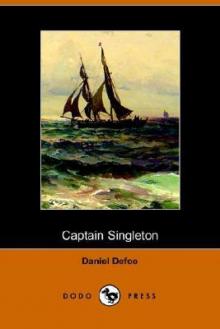 Captain Singleton
Captain Singleton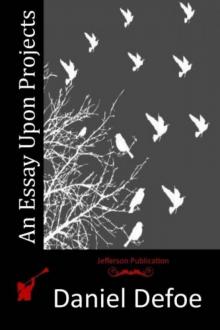 An Essay Upon Projects
An Essay Upon Projects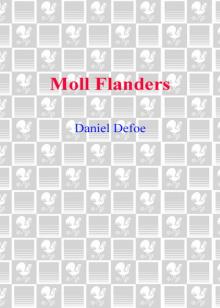 Moll Flanders Moll Flanders Moll Flanders
Moll Flanders Moll Flanders Moll Flanders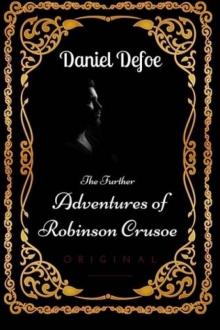 The Further Adventures of Robinson Crusoe
The Further Adventures of Robinson Crusoe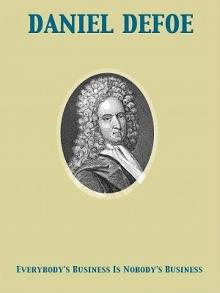 Everybody's Business Is Nobody's Business
Everybody's Business Is Nobody's Business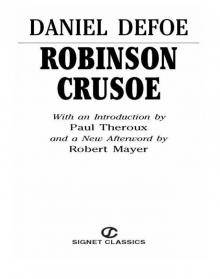 Robinson Crusoe
Robinson Crusoe The Storm
The Storm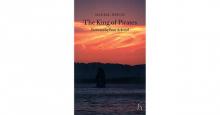 The King of Pirates
The King of Pirates History of the Plague in London
History of the Plague in London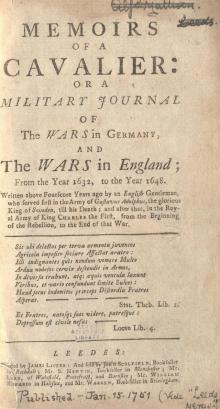 Memoirs of a Cavalier
Memoirs of a Cavalier_preview.jpg) The Life and Most Surprising Adventures of Robinson Crusoe, of York, Mariner (1801)
The Life and Most Surprising Adventures of Robinson Crusoe, of York, Mariner (1801)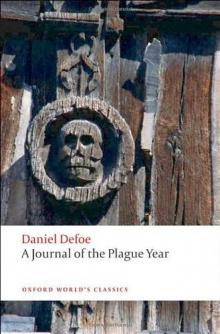 A Journal of the Plague Year
A Journal of the Plague Year_preview.jpg) The Life and Adventures of Robinson Crusoe (1808)
The Life and Adventures of Robinson Crusoe (1808)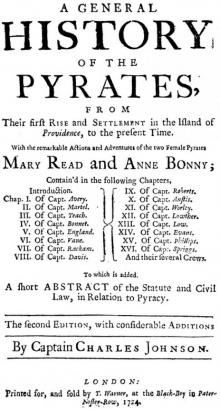 A General History of the Pyrates: / from their first rise and settlement in the island of Providence, to the present time
A General History of the Pyrates: / from their first rise and settlement in the island of Providence, to the present time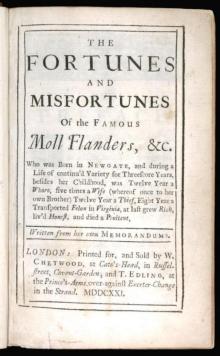 The Fortunes and Misfortunes of the Famous Moll Flanders
The Fortunes and Misfortunes of the Famous Moll Flanders_preview.jpg) The Fortunate Mistress (Parts 1 and 2)
The Fortunate Mistress (Parts 1 and 2)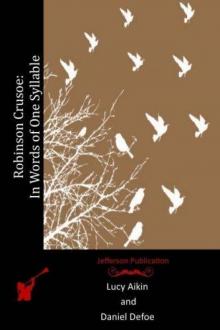 Robinson Crusoe — in Words of One Syllable
Robinson Crusoe — in Words of One Syllable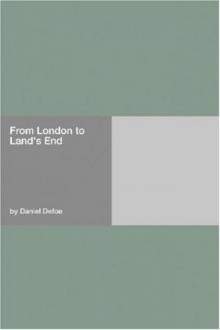 From London to Land's End
From London to Land's End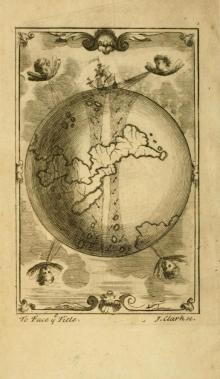 A New Voyage Round the World by a Course Never Sailed Before
A New Voyage Round the World by a Course Never Sailed Before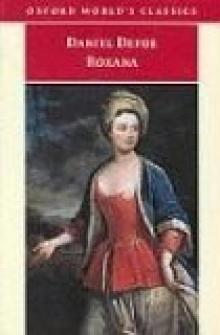 Roxana
Roxana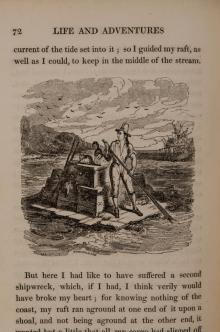 The Life and Adventures of Robinson Crusoe of York, Mariner, Volume 1
The Life and Adventures of Robinson Crusoe of York, Mariner, Volume 1_preview.jpg) Memoirs of Major Alexander Ramkins (1718)
Memoirs of Major Alexander Ramkins (1718)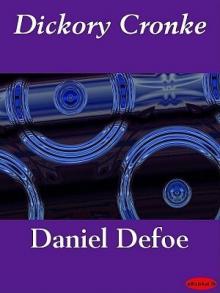 Dickory Cronke
Dickory Cronke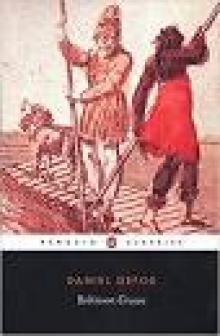 Robinson Crusoe (Penguin ed.)
Robinson Crusoe (Penguin ed.)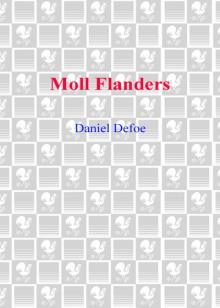 Moll Flanders
Moll Flanders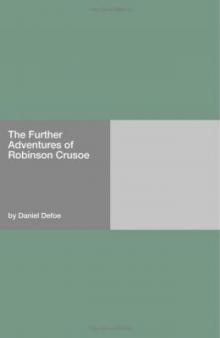 The Further Adventures of Robinson Crusoe rc-2
The Further Adventures of Robinson Crusoe rc-2